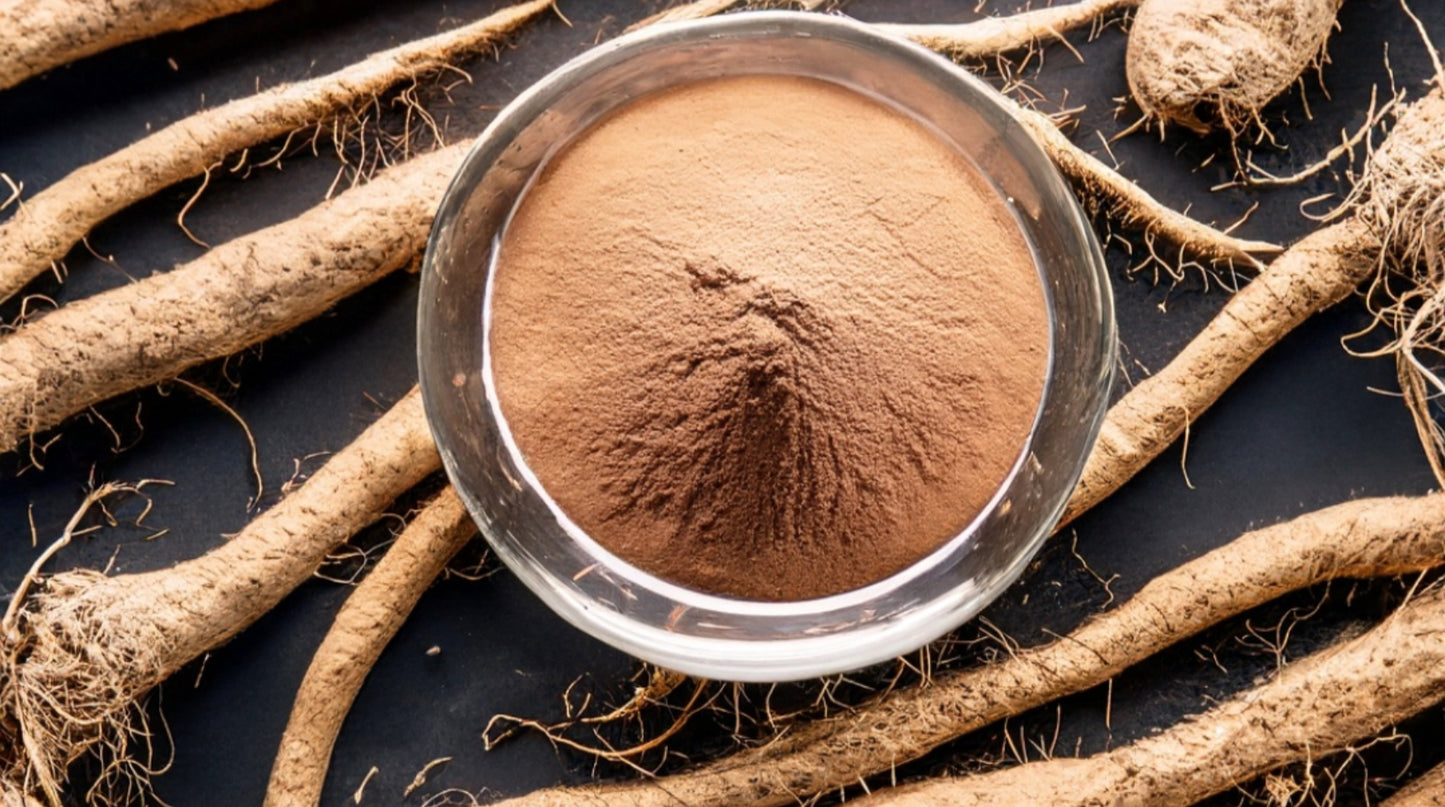
Healing Herbals
Organic Ashwaganda Powder
Organic Ashwaganda Powder
Couldn't load pickup availability
Organic Ashwaganda Powder
Our Organic Ashwagandha Root Extract Powder is derived from Withania somnifera root, a plant revered in traditional Ayurvedic practice. Luscious extract is delicately processed into a light powder, so it is easy to mix into smoothies, tea, or meals.
Made from roots grown organically, the powder contains no fillers or additives. Silkily textured and possessing a dense earthy taste, it is an effortless means to include a classic botanical in your life.
Ingredients
100% Organic Ashwagandha Root Extract Powder (Withania somnifera)
FDA Disclaimer
This product is intended for use as a dietary supplement. These products are not reviewed by the Food and Drug Administration. This product is not intended to diagnose, treat, cure, or prevent disease. If you are pregnant, nursing, taking medication, or have a medical condition, consult with your doctor prior to use.
Share

Great product. A little goes a long way and helps me to get a good night's sleep.

Here at Healing Herbals Store
We carefully select suppliers who share our commitment to environmental stewardship and minimize waste through eco-conscious or reused packaging whenever possible. We prioritize supporting fair labor practices and are currently investing in regenerative farming methods, so every product reflects our dedication to both quality and the health of our planet. Shop now!

